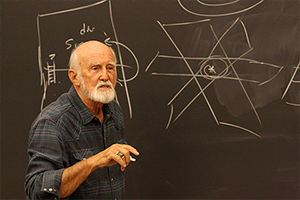Undergraduate Catalog 2019-20 [ARCHIVED CATALOG]
Philosophy
|
|

Coordinator: Associate Professor Brendan Lalor
The Philosophy Program offers a Bachelor's degree (BA.PHI) and a Minor Program in Philosophy.
The purpose of the Philosophy Program is to provide a foundation in philosophy and its highly effective skills of reasoning. Philosophy is the study of problems about the nature of reality, knowledge, and value. The questions of philosophy and the attempts to solve them, as presented in the writings of many of the world's most valued thinkers, constitute the core of the human drive to understand ourselves and our place in the world. Students can study major philosophical figures: Plato, Aristotle, St. Thomas Aquinas, Descartes, Kant, Mill, Nietzsche, Sartre, Wittgenstein, Quine, and more. The curriculum also introduces them to major philosophical and religious traditions: metaphysical dualism, materialism, nihilism, theism, existentialism, Judaism, Christianity, Islam, Hinduism, Buddhism, Taoism, and Confucianism.
At the same time, Philosophy trains its students to think more clearly and critically. That concentrated training in critical thinking is one of the best preparations for entry into any professional career. Many philosophy majors go into education in order to teach and do continued research in philosophy; but many more use philosophy as preparation for careers in the law, medicine, business, communication, and the arts. Those are increasingly common careers for philosophy majors.
Educational Objectives:
- The student will read philosophical works with understanding and critical reflection.
- The student composes an exposition of a philosophical problem or position describing how it is addressed by two to three philosophers from different historical periods.
- The student engages in philosophic discourse by asking questions and offering responses that indicate understanding of a position's implications and presuppositions.
ProgramsMajorMinor
|